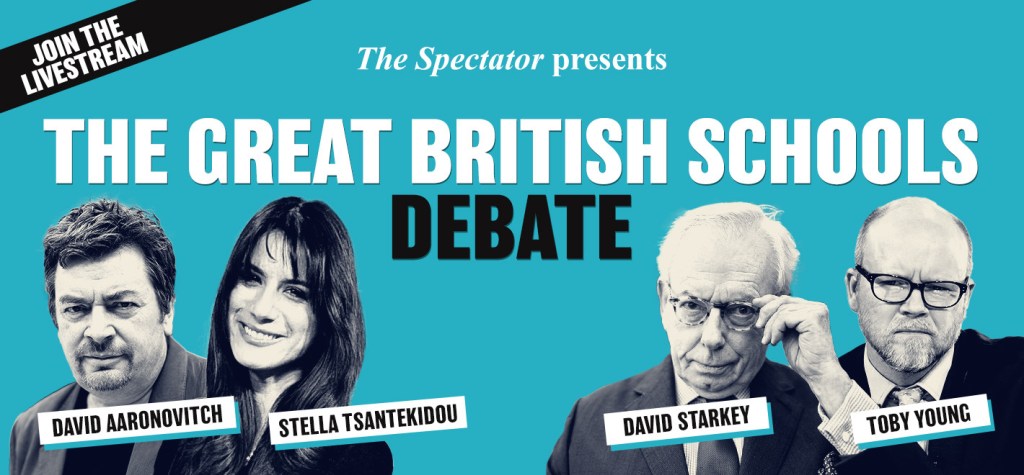The United States is no longer an ‘ally’ of Europe, according to a former high-ranking figure in Nato. In an interview with Times Radio, Stefanie Babst, erstwhile deputy assistant secretary general of the alliance, said President Trump has ‘switched sides’ and aligned the US with Russia, led by the ‘war criminal’ Vladimir Putin. ‘I don’t think that the Trump administration is prepared to really commit any longer to Nato, to the trans-Atlantic alliance as such,’ said Babst, ‘and he couldn’t care really less for European security.’
Babst’s remarks appear to contradict what she said in an interview exactly twelve months ago with a Washington think-tank. ‘With a few exceptions,’ said Babst, ‘most European politicians are true masters in paying lip service to strengthening Europe’s defence.’
The US remains an ally of Europe – but it’s no longer prepared to play mother
She gave a series of examples, stretching back to 1999, of European leaders promising to invest more in its defence. ‘Yet more than twenty years later, Europe still lacks a credible military posture,’ said Babst. Perhaps, she suggested, it would be good for Europe if a ‘powerful disruptor’ like Trump won the 2024 US election. ‘The gloomy prospect of no longer being able to rely on US security support could push Europeans out of their comfort zone and make them seriously invest in defence.’
Europe has been disrupted, all right, and its response is a hastily-arranged summit in Paris today to discuss the war in Ukraine. Outraged that they have not been invited by the US to attend talks with Russia about Ukraine’s future, European leaders want to show that they are still relevant. ‘Given the acceleration of the Ukraine question…it is essential for the Europeans to do more, better and in a coherent way for our collective security,’ said a spokesperson for President Emmanuel Macron.
The BBC reports that only those European countries with ‘military heft’ will be present in Paris: Britain, France, Germany, Italy, Poland, Spain and Denmark, along with the EU Council president and the secretary general of the defence alliance. One of the EU nations not present, Hungary, criticised the summit on Monday morning. Foreign Minister Peter Szijjarto described it as ‘frustrated, pro-war and anti-Trump European leaders…meeting to prevent a peace agreement in Ukraine’.
Is there any military ‘heft’ left in Europe? Germany doesn’t have any, according to Stefanie Babst (herself German), who singled out her country for criticism last year. ‘Even external shocks like Russia’s illegal annexation of Crimea in 2014 did not prompt Germany, Europe’s largest economy, to take serious steps toward rebuilding its cannibalised armed forces,’ she commented.
Germany’s defence minister from 2013 to 2019 was Ursula von der Leyen; so incompetent was she that Germany became a global laughing stock in 2015 when it was revealed that its soldiers were reduced to using broomsticks on training exercises because they lacked machine guns. Von der Leyen’s reward for six years of failure was to be appointed president of the European Commission in 2019, the most powerful political position in Europe.
France, the EU’s sole nuclear power, is paying the price for years of under-investment in military spending; a parliamentary defence committee report in 2023 noted that ‘the overall deterioration in French ammunition stocks since the end of the Cold War is now untenable given France’s military ambitions’.
A similar report by the Commons defence committee last year stated that the British military had been ‘hollowed out’ to such an extent that the army is incapable of fighting a peer-to-peer war beyond eight weeks.
If Europe is to start restoring its reputation in the eyes of the US, it will need to spend more on defence and send troops to Ukraine once a ceasefire has been negotiated. Keir Starmer has promised to do both, writing in the Daily Telegraph today that ‘Europe must step up further to meet the demands of its own security… we have talked about it for too long’.
There were similar pledges last month from Germany and France. Sébastien Lecornu, France’s armed forces minister, admitted that not only has Europe been ‘too slow in rearming’ but that the money spent had often been wasted ‘to buy weapons to fill hangars and not know how to use them’.
Understandably, the Americans will treat these promises with scepticism: they’ve heard them before. In September 2017 – four months after his election to office – Macron gave an address at the Sorbonne entitled ‘Initiative for Europe’. The young president told his audience that the US had embarked on a ‘gradual and inevitable disengagement’ from Europe. Consequently, Europe must ‘act in concert… our aim needs to be ensuring Europe’s autonomous operating capabilities, in complement to Nato’.
This was one of ‘six keys to sovereignty’ outlined in Macron’s speech that he deemed essential to Europe in the years ahead. Another was controlling the continent’s borders. ‘Only with Europe can we effectively protect our borders, take in those eligible for asylum decently, truly integrate them, and at the same time quickly return those not eligible for such protection,’ said Macron. In both domains, Europe has failed miserably.
The US remains an ally of Europe – but it’s no longer prepared to play mother; Trump has cut the apron strings and, to paraphrase Stefanie Babst, kicked the continent out of its comfort zone. Is it capable of standing on its two feet? Today’s Paris summit is the first opportunity for Europe to show that it can.








Comments